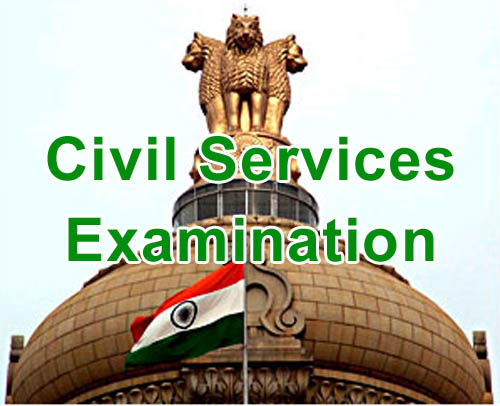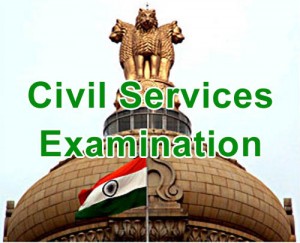
 The formation of the Indian Civil Services dates back to the British Raj. The Indian Civil Services was established by the British East India Company. Over the years the Indian Civil Services has undergone changes to keep up with the changing times but today it has become complex and broader. In a Country like India with its diversity, having an efficient system with proper management for Administration are important aspects when running a Country therefore, the option of Civil Services comes to the fore.
The formation of the Indian Civil Services dates back to the British Raj. The Indian Civil Services was established by the British East India Company. Over the years the Indian Civil Services has undergone changes to keep up with the changing times but today it has become complex and broader. In a Country like India with its diversity, having an efficient system with proper management for Administration are important aspects when running a Country therefore, the option of Civil Services comes to the fore.
There are several Competitive examinations or Civil Service Examinations CSAT, UGC, B.Ed/M.Ed, NDA, CDS, AFCAT, TET, Railways, PSU, SSC, Police Department etc. Individuals wishing to pursue a career in the Government Sector are required to clear the Civil Services Examinations (CSE) namely Civil Services Aptitude Test (CSAT). This examination is conducted in 3 parts; the CSAT, the Civil Service Mains (a written test) and a Personal Interview. A Candidate gets 4 attempts to clear it. The CSAT is conducted by the Union Public Service Commission (UPSC) for the selection of candidates of the Civil Service Mains for recruiting candidates in to the various Civil Services of the Government of India.
The career aspects are divided into 3 broad categories and simultaneously there are various opportunities within these categories itself. For recruitment there are 25 Services or Posts namely 3 in the All India Services, 17 in Group A Services and 5 in Group B services.
The services which come within the All India Services are:
- Indian Administrative Service (IAS),
- Indian Foreign Service (IFS)
- Indian Police Service (IPS)
The services which come within Group – A are:
- Indian Audit and Accounts Service,
- Indian Revenue Service (IRS) (Customs and Central Excise),
- Indian Defence Accounts Service,
- Indian Postal Service
- Indian P & T Accounts & Finance Service
- Indian Revenue Service (IRS) Income Tax (I.T.)
- Indian Ordnance Factories Service (Assistant Works Manager, Administration)
- Indian Civil Accounts Service
- Indian Railway Traffic Service
- Indian Railway Accounts Service
- Indian Railway Personnel Service
- Post of Assistant Security Commissioner in Railway Protection Force
- Indian Defence Estates Service
- Indian Information Service (Junior Grade)
- Indian Trade Service, Group ‘A’ (Gr. III)
- Indian Corporate Law Service
- Indian Forest Service (IFoS)
The services which come within Group-B are:
- Armed Forces Headquarters Civil Service (Section Officer’s Grade)
- Delhi, Andaman & Nicobar Islands, Lakshadweep, Daman & Diu and Dadra & Nagar Haveli Civil Service
- Delhi, Andaman & Nicobar Islands, Lakshadweep, Daman & Diu and Dadra & Nagar Haveli Police Service
- Pondicherry Civil Service,
- Pondicherry Police Service
Indian Administrative Service (IAS)
The IAS officers are responsible for the management of the various administrative departments and their respective functions. Their duties include framing of policies and acting as advisors to the ministers. Apart from this they are also responsible or executing appointed duties given as the officers in charge of the administration of smaller administrative units. The District Magistrate for instance, is in charge of a district and has to look after the law and order situation as well as the administration and the over all development of the area.
Indian Police Service (IPS)
The Indian Police Service is directly responsible for maintaining law and order in the state of India. It is responsible to look after the safety of the citizens of the country. There are various branches and associated departments like the Border Security Force, the Department of Home Guards, the Central Bureau of Investigation, the department of Traffic Control, the Criminal Investigation Department, the Central Reserve Police Force, the Crime Branch, etc. in the Indian Police Service . An IPS officer sometimes works along with an IAS officer of the same district.
Indian Forest Service (IFoS)
An officer of the Indian Forest Service takes care of the vast forest resources of the country. They are also responsible to conserve it and protect it from illegal poacher, loggers, grazers etc.
Indian Foreign Service (IFS)
The Indian Foreign Service is associated with the countries External and Foreign Affairs Ministry. The officials are responsible for the framing of foreign policies as well as maintaining and regulating the Indian embassies in various countries of the world.
Indian Railway Service
The Indian Railway Service is in charge of the huge network of railways in India which is divided into the Indian Railway Traffic Services (IRTS), the Indian Railway Personnel Services (IRPS), the Indian Railway Accounts Services (IRAS) and the Railway Police Service (RPS). The Railway Police Service is responsible for maintaining the security of the whole system and especially the passengers. The Indian Railway Traffic Service deals with the scheduling of trains and the passengers and the freight carried by these trains. The Indian Railway Personnel Service is the branch which deals with the recruitment of the officers and other administrative workers. While the Indian Railway Accounts Services is in charge of looking after the accounts of this vast system. The branches mentioned so far are the non technical branches of the Indian Railways. For the recruitment of the technical staff such as engineers, there is a different entrance test altogether.
For the recruitment of the Indian Railway Service Engineers (IRSE) or the Indian Engineering Services (IES), the UPSE conducts a different examination namely the ‘Engineering Service Examination (ESE)‘. These individuals are responsible for the maintenance of all fixed assets of Indian Railways, i.e. Track, Bridges, Buildings, Roads, Water supply, land etc. In addition to maintenance of existing assets the IRSE engineers are responsible for the construction of new assets such as New lines, Gauge conversion, doubling and other expansion and developmental works in Railways. Apart from these they are also responsible for the safety and punctuality of the Indian Railways (wikipedia).
Indian Postal Service
The Indian postal Service staff looks after the functioning of the country’s postal network including the the telegraph services. Officers start out as Senior Superintendent of Post Offices initially. They can be posted to any part of the country and the central Ministry as well (wikipedia).
Indian Customs and Central Excise Service
As the name suggests, it deals with the custom and excise departments. The former deals with the levying of taxes on things brought into the country whereas the department of excise duties deals with the taxation of goods which are produced in the country (wikipedia).
Audit & Accounts Service
The Audit and Accounts Service department maintains the accounts of all the states of India. There are various specialised branches such as the Indian Defence Accounts Service which deals with the expenditure of the Indian Defence Services. And the Indian civil Accounts Service which falls under the direct administration of the Secretary of the Ministry of Finance (wikipedia).
Indian Information Service (IIS)
The Indian Information Service deals with the transmissions of government media apparatuses like Doordarshan and Prasarbharati. It falls under the purview of the Ministry of Information and Broadcasting (wikipedia).
Indian Revenue Service (IRS)
The officers of the Indian Revenue Service aid in the assessment and fixing of the rates of income tax and are also responsible for collecting the same. There are branches within it dealing with tax crimes such as evasion of income tax and those which build up statistics (wikipedia).
Growth Prospects
After a candidate is chosen s/he is sent for training. On completion of the training he or she is sent as a probationary officer to serve under the district magistrate or in government schools, secretariats and other posts that involve on the field experience. The positional hierarchy is as follows:
Under Secretary
Director
Joint Secretary
Additional Secretary
Secretary
Cabinet Secretary
In the districts the highest position belongs to the district magistrate and the deputy commissioner is in charge at the divisional stratum. Based on seniority, an officer may be chosen to represent the country at international bodies like the WHO, UNHCR, etc (wikipedia).
Civil Service aspirants who have a desire to serve one’s country and to contribute towards its improvement or development. These individuals should be fine with being posted in any part of the country-even in the remotest of villages without the facilities in the urban area such individuals are perfect for a career in Civil Services (wikipedia). For more information visit www.careerfutura.com.
